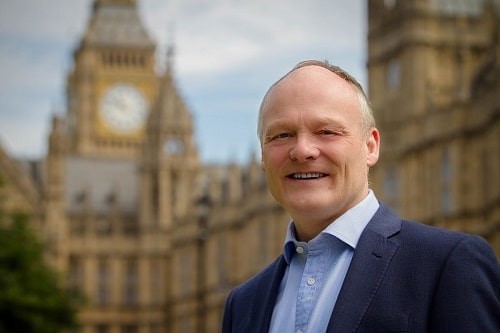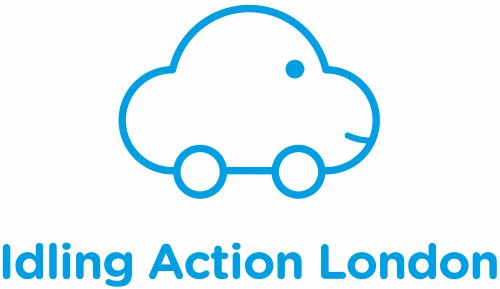The Building Safety Bill includes much to be welcomed and could be the way to ensure that a tragedy like Grenfell and the cladding and fire safety defect scandal never happen again.
Opinion
Action needed to cover fire safety remediation costs
Our house building and construction industry needs better regulation, but that regulation must be enforced in a way it hasn’t been in the past. It is important to note that many of the defects highlighted since Grenfell would not have been classed as defects during construction. The government has retrospectively deemed materials to be unsafe and that is where the problems began, leading to the introduction of the External Wall System (EWS1) form.
Much of what is now deemed unsafe by the EWS1 form is probably safe. Wooden balconies are unlikely to catch fire and some cladding that now requires removal would be very difficult to ignite. The government’s response to Grenfell has been to overreact in some parts and drag its feet in others.
 Royston Smith MP: "The industry is suffering, the housing market for high-rise residential properties is collapsing and leaseholders are facing huge bills."
Royston Smith MP: "The industry is suffering, the housing market for high-rise residential properties is collapsing and leaseholders are facing huge bills."
With the confusion caused by the government’s reaction to Grenfell, it should come as no surprise that lenders will only approve a mortgage with a valid EWS1 form. The problem is many properties should not be caught up in the EWS1 issue at all and the government has finally accepted that.
We need more homes, no one can doubt that, and the government has responded by investing billions of pounds to stimulate house building and incentivise people to realise the dream of home ownership. The pressure to develop quickly has caused some of the problems which are now destabilising the market.
Cladding is not cheap, it is quick. People assume cladding is used to save money and maximise profits for the developer, but brick-built blocks are as cheap if not cheaper than cladding. The challenge is the supply of bricks and the bricklayers to lay them. Both have been in short supply in the past, so cladding has been used to fill the gap.
We can address these issues if we want to. We can make apartment blocks safe and built to the very highest standards without increasing the cost of construction dramatically. Some parts of the industry have seen the writing on the wall and stepped up to future proof their developments already. In my Southampton Itchen constituency, we have seen the development of some of the safest dwellings ever built. The fire safety standards are second to none with fireproof compartments, doors and door frames, balconies, and glazing. Every detail has been considered including the use of sprinklers.
The building industry is ready and willing to help us out of this crisis. Many house builders are rightly concerned with the reputational damage this crisis is creating. Most developers adhered to the standards which were approved at the time and most of them have done nothing wrong. We cannot afford to let this fire safety crisis drag on. The industry is suffering, the housing market for high-rise residential properties is collapsing, leaseholders are facing huge bills, and some have sadly already lost their homes.
Part of the government’s answer is to extend the window in which leaseholders can sue developers from six to 15 years from the time of construction, in the form of an amendment to the Defective Premises Act. This amendment does not solve the problem. Who are leaseholders going to claim from? What if the company no longer exists or has ceased trading? What about the large percentage of high-rise buildings built before the 15-year period the amendment covers? It’s the worst of all worlds. The only people benefiting from this will be the unscrupulous insurers and lawyers and goodness knows many of those have benefited enough already.
It is difficult to understand why the buildings which are defective (and they are fewer in number than we are led to believe), are not covered by insurance. Every developer and development are required to have professional indemnity insurance. As soon as there is a complaint the insurers are informed. As soon as they are informed, they should start the process of settling any claim. There has been silence about this from the government, from developers and of course, from the insurers. In most instances we know who the developers are, but we have no idea who the insurers are.
One of the ways to solve the situation beyond what should be covered by insurance would be a levy on house builders. It can work in the same way as the apprenticeship levy and could be a game changer for funding remediation costs by protecting small businesses, leaseholders and the taxpayer all at little cost to large housing developers. The government could underwrite it until the pot gets big enough and then take back thereafter. This would take the burden away from the innocent leaseholders and freeholders and allow the market to correct itself.
It doesn’t have to be complicated. It should include only those defects which are in the current scope for EWS1 and exclude everything else including maintainable defects. The government has spent a good deal of time on this, so it is difficult to see why a solution is not possible. While the government intended to protect residents of high-rise flats through improved safety standards, the unintended consequences have snowballed in the past few years and must be met with a fair and practical solution. The Building Safety Bill must remedy the plight of leaseholders before further damage is done.
Royston Smith is the Conservative MP for Southampton Itchen.
Follow Royston Smith MP at: www.roystonsmith.co.uk
https://twitter.com/Royston_Smith
More on the Building Safety Bill here
OPINION

Why your business should act on engine idling
By Jack Alexander, project officer, Idling Action London on 01 October 2021

The air we breathe is all our business
By Nicky O’Malley, director of corporate partnerships, Global Action Plan on 01 June 2023
Businesses have a vital role to play in improving air quality – and the UK’s Clean Air Day on 15 June is a great opportunity for companies to begin or renew their efforts in this area.

All jobs greener: why we need workforce transformation for a sustainable future
By Martin Baxter, deputy CEO, IEMA (Institute of Environmental Management & Assessment) on 01 June 2022
The shift to a green economy will create green jobs within new and emerging sectors, while those working in existing sectors will have to gain the requisite green skills to take advantage of the business value-creation opportunities that come from embedding sustainability across the whole organisation.



